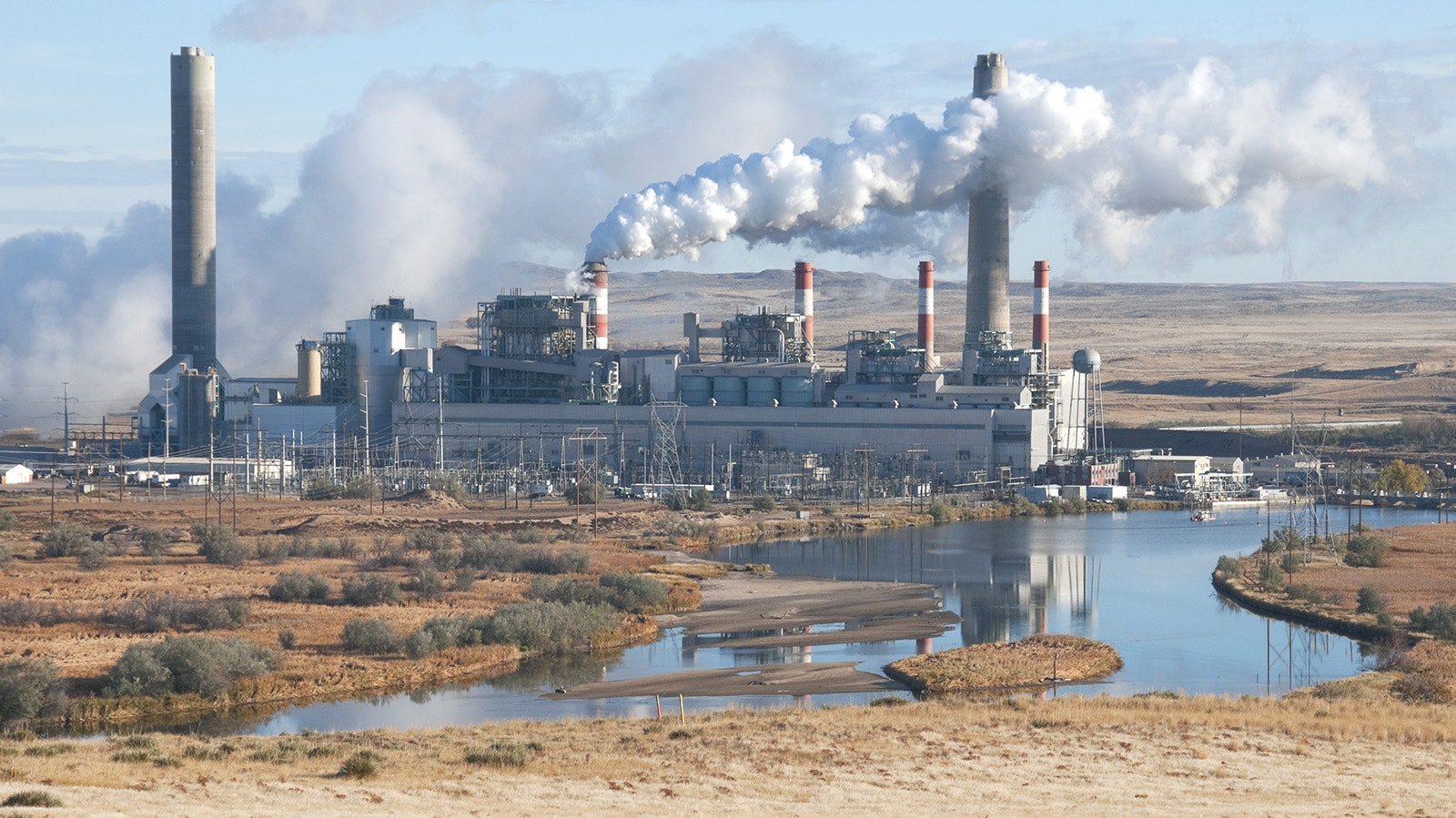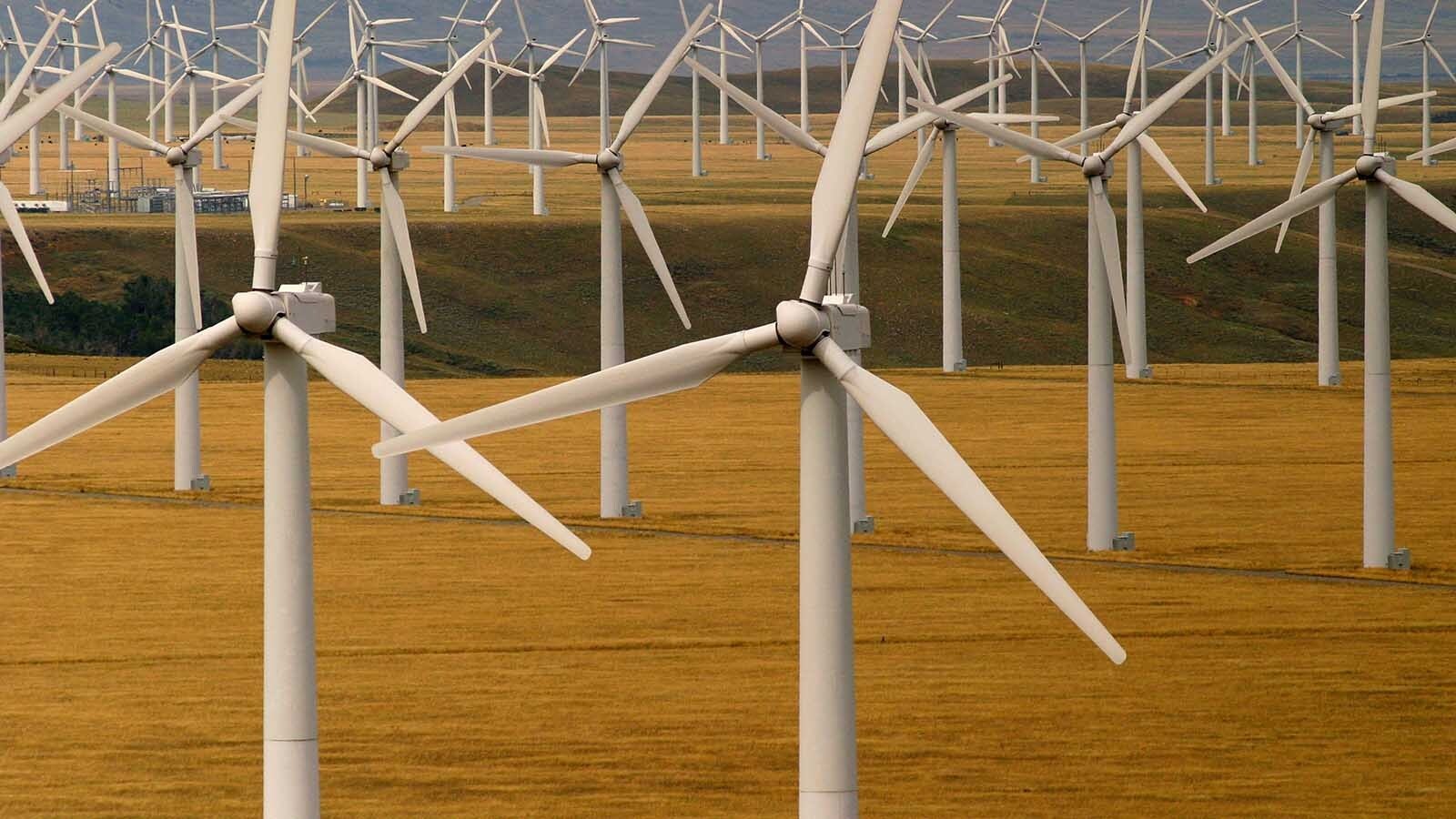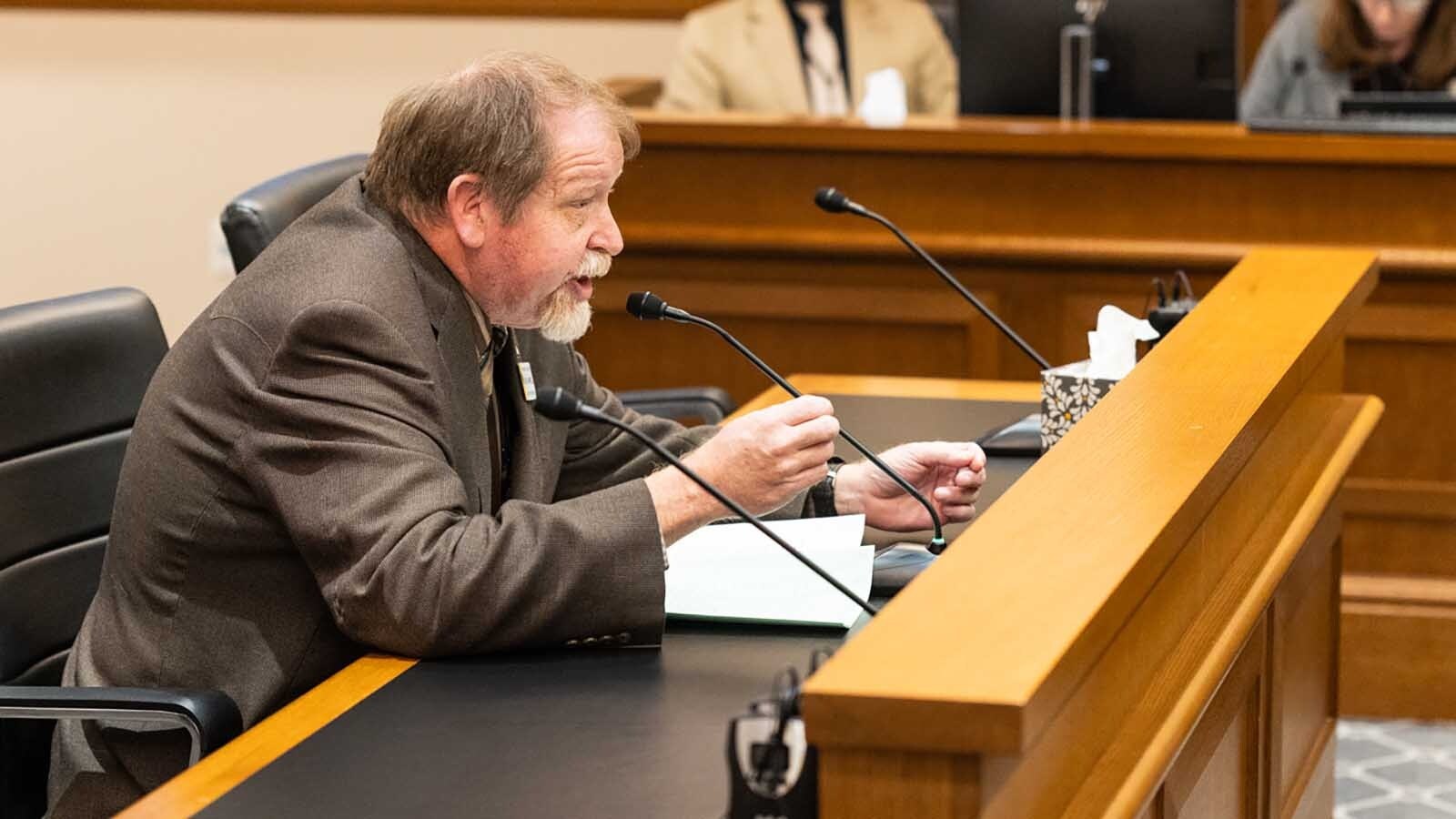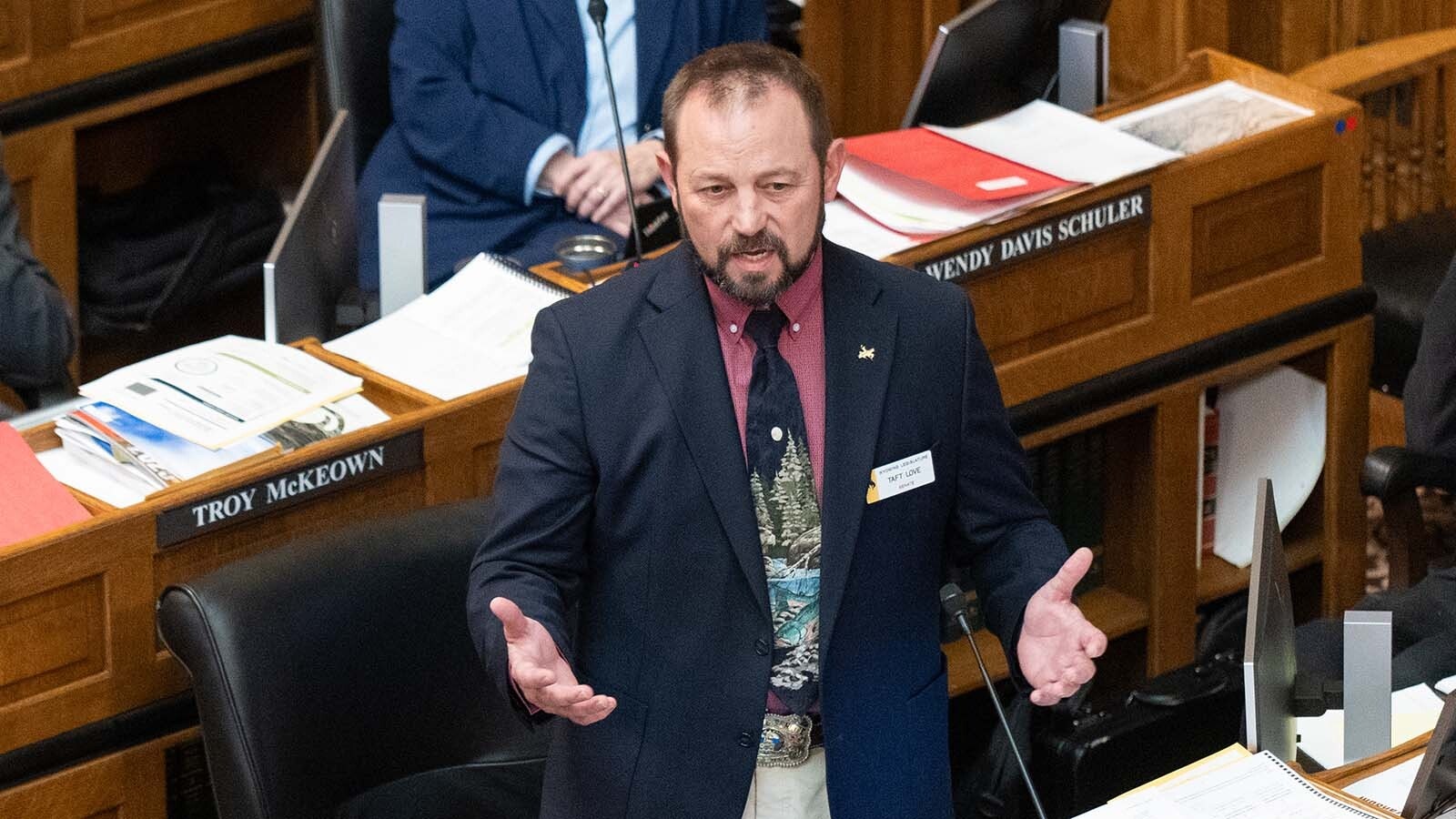Wyoming lawmakers are seriously examining a pie-in-the-sky approach to energy independence and ownership of coal- and natural-gas power plants in the Cowboy State that would pit them against the Biden administration’s policy of ending coal production by 2041.
It’s a page that Wyoming is taking out of Utah’s playbook.
“I wanted to do something similar in Wyoming this last session (in March), but I wanted to see what Utah did first,” said state Sen. Dan Dockstader, R-Afton, who chairs the Legislature’s influential Senate Minerals, Business and Economic Development Committee.
The final say on Utah’s energy independence may still be a few months away.
Dockstader said that lawmakers with Wyoming’s neighboring Beehive State may be tinkering with its business model in a special legislative session this summer.
“Do we sit back and accept the Biden administration’s policies, or do we find a better way?” Dockstader told Cowboy State Daily. “Wyoming wouldn’t be my home if I didn’t dig my heels in. The only thing that held me back (in the March session) was that I wanted to do it right when we did it.”
A second major change in Utah designed to give it energy independence is the creation of a state-run insurance fund to help defray liabilities and expenses associated with wildfires and that have brought down some utilities.
In 2019, for instance, Pacific Gas & Electric, a utility that provided electricity for much of northern and central California, declared bankruptcy after being held liable for $30 billion in wildfire damages caused by the company’s powerlines.
Independent Attitude
The idea of energy independence is picking up steam in Wyoming.
Earlier this month, a group of Utah lawmakers and Joel Ferry, executive director of the Utah Department of Natural Resources, spoke about what they’re trying to accomplish to Wyoming lawmakers attending a Joint Minerals, Business and Economic Development Committee on the campus of the University of Wyoming in Laramie.
As they gear up for a new legislative session in 2025, the Wyoming committee has opened a file on a draft piece of legislation that hasn’t yet been shared with the public. The draft legislation is not out of the ordinary for this time of year, with such proposals not getting firmed up until later.
Rep. Donald Burkhart, R-Rawlins, who is chairman of the same committee as Dockstader’s on the House side of the Legislature, couldn’t be reached for comment on the language of the confidential proposal.
According to the head of Rocky Mountain Power and Ferry, the Wyoming lawmakers are taking a deep dive on the issue.
Bring Coal Back
The new approach toward running fossil-fired power plants in Wyoming comes on the heels of a U.S. Bureau of Land Management rule that would end coal production in Wyoming's energy-rich Powder River Basin by 2041.
The Powder River Basin supplies 40% of America’s thermal coal and is tied to 4,000 jobs in northeastern Wyoming where the state recently said production has dropped more than 20% over last year. Talk of layoffs and rumors of consolidation in the industry are picking up.
Wyoming Gov. Mark Gordon said the state attorney general will pursue legal options to challenge the BLM rule.
Meanwhile, Utah may have found the edge to deal with the Biden administration’s war on coal and fossil-fuels more broadly.
This spring, Utah Gov. Spencer Cox signed controversial legislation designed to make his state energy independent, Ferry told Cowboy State Daily, and who was joined at the May 10 committee hearing in Laramie by Utah state Rep. Carl Albrecht, R-Salt Lake City, and Utah state Sen. Scott Sandall, R-Tremonton.
Albrecht and Sandall were the key sponsors of Utah's legislation, called SB 224.
Ferry explained that the new law provides the state’s Public Service Commission (PSC) with guidelines for deciding whether to approve an electrical utility’s proposal for new electrical capacity to ensure they “best align with public interests."
Coal Is A Benefit
“We said consider the base production of coal as a benefit and not detriment,” Ferry said in the interview. “It’s our ability to shore up reliability and power in our state.”
This thinking is a significant departure for Utah, because the legislation clears the way for the PSC to continue to permit the operation of a two PacifiCorp-owned coal-fired power plants in the state, for instance — Huntington and Hunter — and sell their excess power at a higher price to out-of-state buyers.
This is a key policy shift for Utah because surrounding states have either cut down on reliance or completely closed coal-fired plants, Ferry said.
The move permits Utah to keep its electricity rates low for its own customers while producing high-priced power sold at a premium on the wholesale market to other utilities in states like California, Oregon and Washington that have embraced alternative energy markets with solar and wind at their core, Ferry said.
At the May 10 hearing in Laramie, Rocky Mountain Power’s Dick Garlish, who was named as president of the Wyoming utility with a major presence in Utah and Idaho, said that a “multi-state protocol” shared by six states in the Pacific Northwest could provide a benefit to Wyoming and other states.
The multi-state protocol is a series of cost allocation methodologies that seeks to equitably share the costs of PacifiCorp’s system between all states.
“It’s worth discussing,” said Garlish at the hearing of ways his utility could drive down costs for Wyoming customers.
Utah officials also are up in arms over the Biden administrations “good neighbor” policy outlined by the Environmental Protection Agency which aims to cut down on cross-state smog pollution from power plants and other industrial sources.
That plan would require a compact of western states to take steps to reduce smog.
Stick It To California
There are several coal- and natural gas-powered generation stations in Wyoming that are jointly owned by more than one utility or owned solely by Portland, Oregon-based PacifiCorp, a Warren Buffet-owned utility that stretches across the Pacific Northwest and Rocky Mountain Power in the Cowboy State.
These Wyoming power plants — including coal-fired plants in Naughton and Bridger in the southwestern part of the state, to Dry Fork near Gillette and Dave Johnston plant near Glenrock — have varying degrees of ownership, including PacifiCorp, Basin Electric Power Cooperative and the Wyoming Municipal Power Agency.
The level of cooperation between these plant owners may need to be clarified with Wyoming legislation before they can begin to move excess power out of state for sale.
In Utah, at least two major coal-fired plants are owned by PacifiCorp. Importantly, Utah wants to preserve its energy base by taking control of dispatch of their electricity to out-of-state buyers who may find themselves short on power due to the closing down of coal plants along western coastal states.
These states — like California, Oregon and Washington — have moved to dependency on less reliable ways to dispatch electricity with solar and wind generation alternatives.
Pat Maio can be reached at pat@cowboystatedaily.com.





